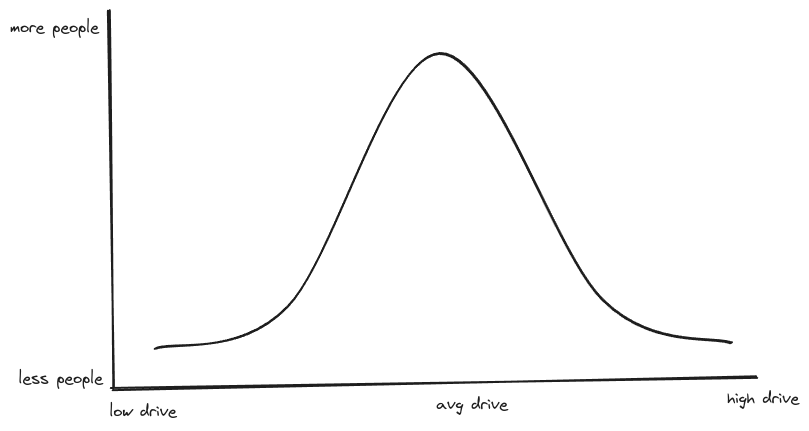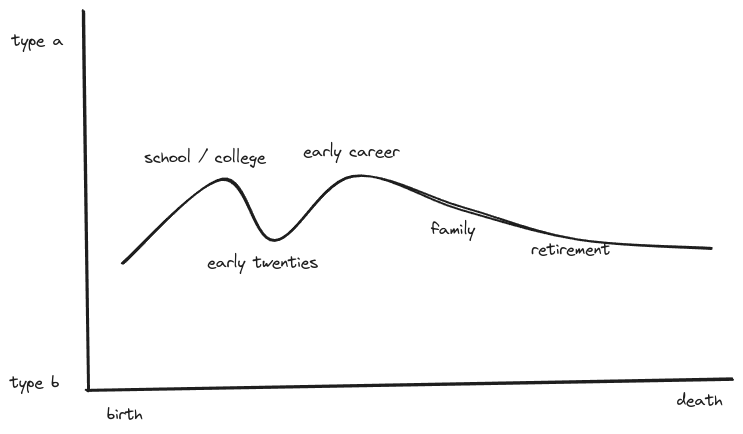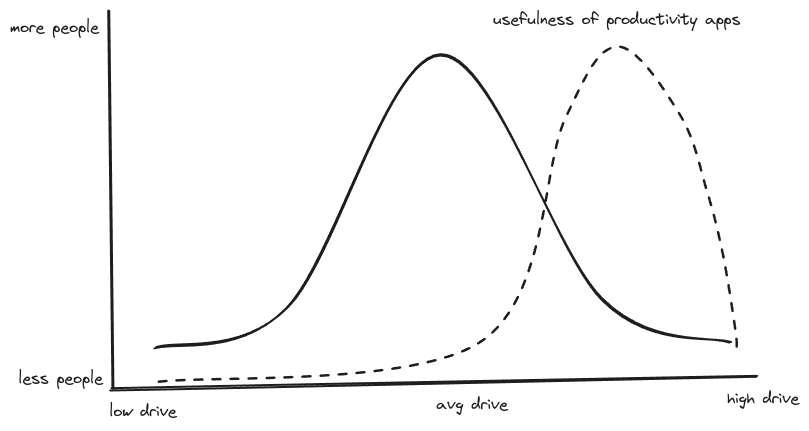Published July 21, 2024
Paradox of Personal Productivity Software
Is it all just snake-oil sales or does anyone benefit from personal productivity tools?
I started building trydeepwork more than 2 years ago. Like any other human, in these two years I've had periods of high productivity and low productivity. As I was also building a tool for personal productivity in parallel, I started exploring how I could make myself more productive by trying out various methods that could help me get over a slump.
Overwhelmingly, my experience with all personal productivity tools has been disappointing to various degrees. Given how many products, techniques and hacks exist in this space - I am convinced that none of them work as long as I don't. This leads us to what I call the paradox of personal productivity: personal productivity software adds value primarily to those who are already quite productive. Let me elaborate.
The root cause seems to be that most of us approach productivity tools with the wrong expectations. We want the tool to make us productive, and that's how these tools are also marketed. That's almost an impossible expectation from a piece of software. A lot needs to happen before we generate output, and putting all that responsibility into a single tool is just wrong. Think back to a time when you were really productive. Most likely, you had a deadline that if you didn't meet could have very bad consequences (exams, work deadlines, etc), or you were very internally driven to accomplish it (envy, pride, and ego must have played into it).
Here's a super scientific chart of personality trait distributions:

Consider this the steady state behavior trait. Most people are of average drive while there are outliers on both ends. The left quadrant are people with lowest drive (also called type B personality), and the right quadrant are people with highest drive (also called type A personality). Most of us belong somewhere in between. This default personality trait is our steady state. However, our productivity isn't constant:

There might be periods in our lives where we are driven to accomplish, or in low productivity slump after which we revert to our mean. Depending on our personality types, the chart can vary where it's on the y-axis.
I believe there's no tool in the world that can help someone be productive when they don't want to. Everyone wants to make a billion dollars. But exceptionally few people really want it. There's a difference in how much someone wants something, and that's the most important part in personal productivity - the tools matter less. There are not enough commitment contracts, to-do list apps, Eisenhower matrices or deep work tools that can make someone work, if they don't innately want it.
Does this mean that these tools add no value? I believe they do, depending on the circumstance. Going back to the first figure, we have to be somewhere to the right side of chart for the productivity apps to add value. Before that we've to help ourselves.

Their usefulness only starts with above average drive, peaks somewhere between 70 - 80 percentile, and drops off precipitously at peak drive. These tools keep us organized, help us focus on the right projects, execute on them with the right speed, and helps us get work done a bit faster than we normally do. But we have to do them.
As our drive increases, however, the tools don't matter as much. Their incremental value drops as majority of the heavy lifting is done by our minds. We can get the same things done with a rock and chalk - we don't need bullet journals.
So this brings us back to the paradox of personal productivity: Personal productivity software adds value to a person who is already quite productive. Whatever software we use, the responsibility of being productive is on us, the software is just a supporting tool.